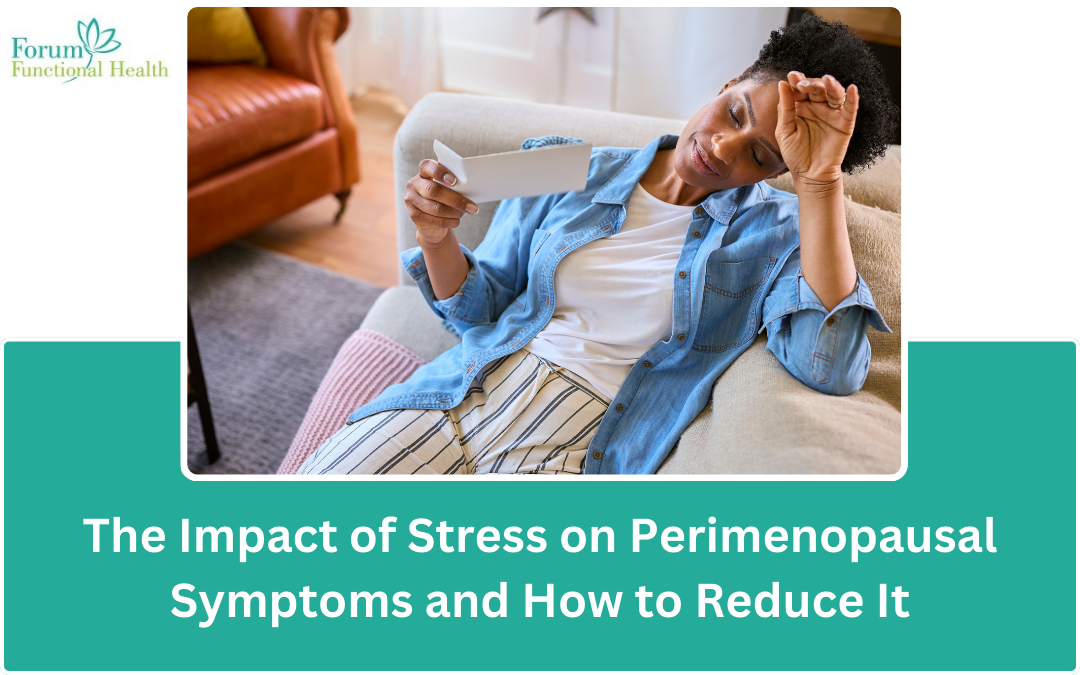Perimenopause, the transitional phase before menopause, can be a challenging time for many women as hormonal fluctuations lead to various physical and emotional changes. Stress during this period can exacerbate symptoms and significantly impact overall well-being. Understanding the relationship between stress and perimenopausal symptoms is crucial for effectively managing this phase of life.
Understanding Perimenopausal Symptoms
Perimenopause typically begins in a woman’s 40s but can start earlier for some individuals. It is characterized by irregular menstrual cycles, fluctuating hormone levels, and the onset of menopausal symptoms such as hot flashes, night sweats, mood swings, and sleep disturbances.
Causes of Stress during Perimenopause
During perimenopause, women may experience stress due to a combination of factors, including hormonal changes, family and work responsibilities, relationship issues, aging-related concerns, and health issues. These stressors can contribute to the exacerbation of perimenopausal symptoms and affect overall quality of life.
Hormonal Changes and Stress
Fluctuating levels of estrogen and progesterone during perimenopause can impact neurotransmitters in the brain, leading to increased susceptibility to stress. Hormonal imbalances can also disrupt the body’s stress response system, making women more vulnerable to the effects of stress.
Symptoms of Perimenopause
Identifying stress symptoms during perimenopause is essential for early intervention and effective management. Stress can manifest in various ways, both physically and psychologically.
Physical Symptoms of Stress
Physical symptoms of stress during perimenopause may include headaches, muscle tension, fatigue, gastrointestinal issues, changes in appetite, and decreased libido. These symptoms can worsen existing perimenopausal discomfort and affect daily functioning.
Psychological Effects of Stress
Stress can also impact mental and emotional well-being, leading to anxiety, irritability, mood swings, depression, and difficulty concentrating. Psychological effects of stress can exacerbate perimenopausal mood swings and contribute to emotional instability.
Strategies to Manage Stress
Managing stress during perimenopause is essential for maintaining overall health and well-being. Implementing effective stress reduction strategies can help alleviate symptoms and improve quality of life.
Lifestyle Changes
Making lifestyle modifications can significantly reduce stress levels and enhance resilience during perimenopause. Prioritizing self-care, maintaining a balanced diet, engaging in regular exercise, and getting an adequate amount of sleep are crucial for managing stress effectively.
Stress-Reduction Techniques
Incorporating stress-reduction techniques into daily routines can promote relaxation and alleviate symptoms of stress. Mindfulness techniques, deep breathing exercises, yoga, meditation, and progressive muscle relaxation are effective methods for reducing stress and promoting emotional balance.
Seeking Professional Help
In some cases, seeking professional help may be necessary to address persistent stress and its impact on perimenopausal symptoms. Therapy, counseling, and medication can provide additional support and help women navigate this challenging phase with greater ease.
Support Systems
Building a strong support network is essential for coping with stress during perimenopause. Social connections, support groups, and meaningful relationships can offer emotional support, validation, and practical assistance during times of need.
Self-Care Practices
Prioritizing self-care is vital for managing stress and promoting overall well-being during perimenopause. Engaging in relaxation techniques, practicing mindfulness, pursuing hobbies and interests, and setting boundaries can help women maintain balance and resilience.
With Forum Functional Health Care, women experiencing perimenopause can find valuable support and resources to manage stress effectively. Through open discussions and sharing experiences, individuals can gain insights into the impact of stress on perimenopausal symptoms and discover personalized stress-reduction strategies.
Engaging with a supportive community allows women to prioritize self-care, explore holistic approaches to stress management, and access professional guidance when necessary. By fostering connections and offering encouragement, Forum Functional Healthcare empowers women to navigate perimenopause with resilience and optimism.

